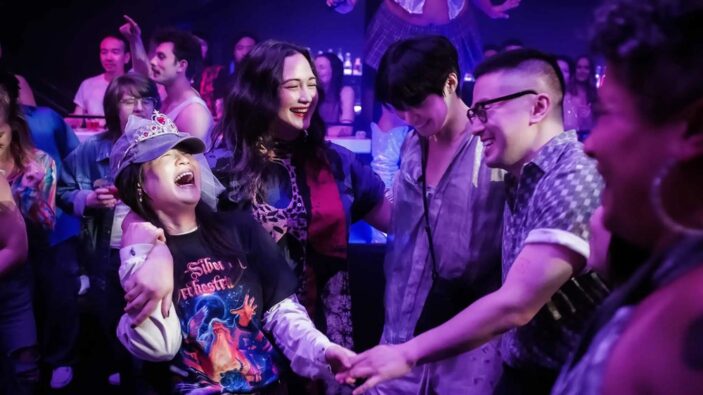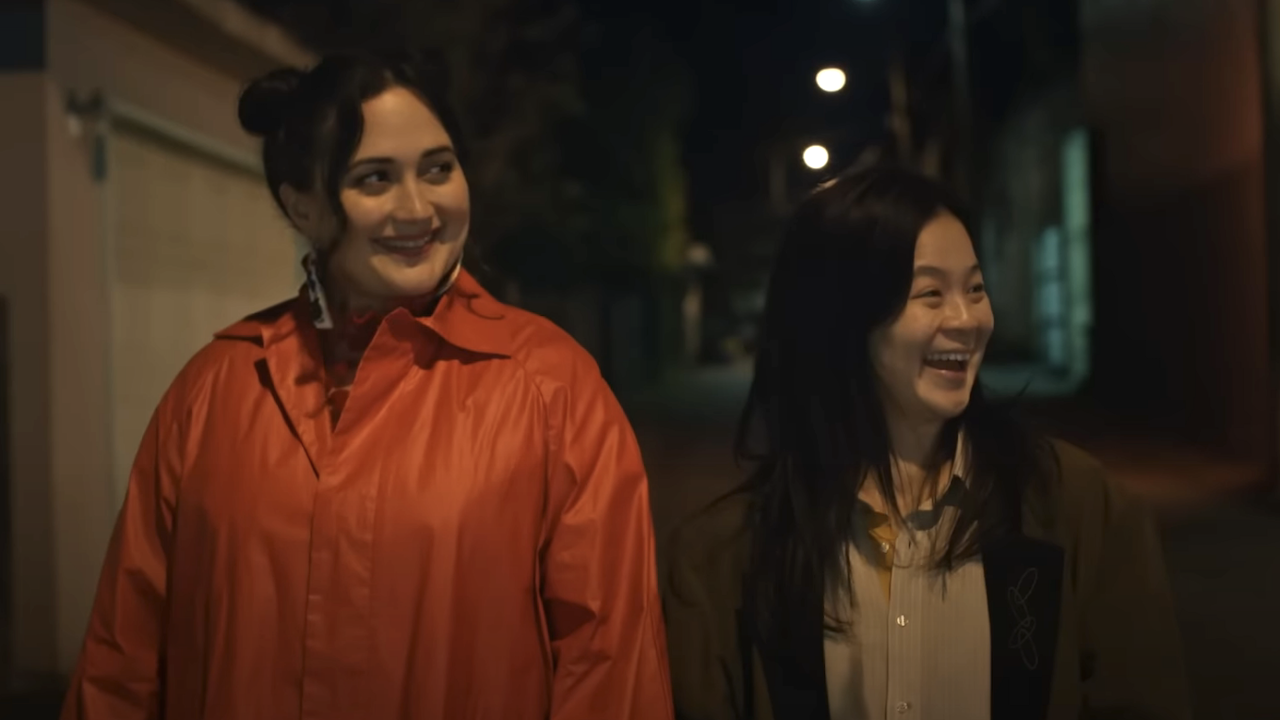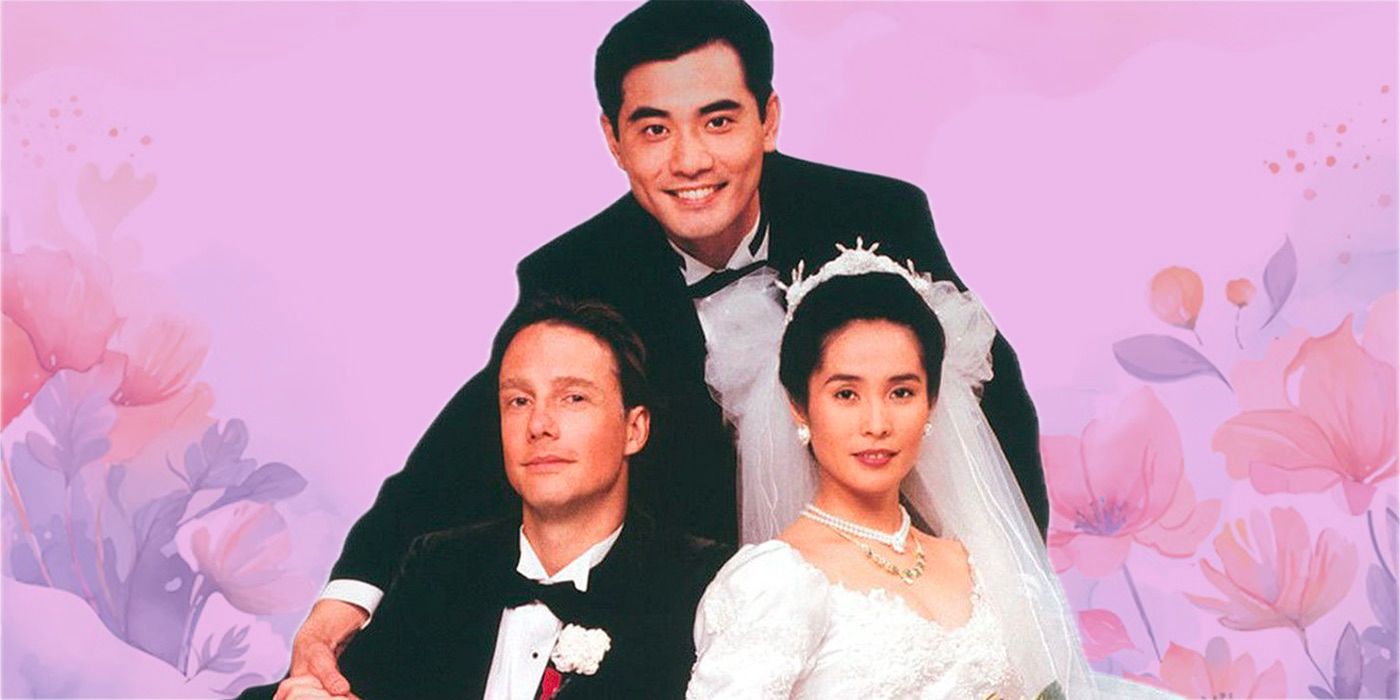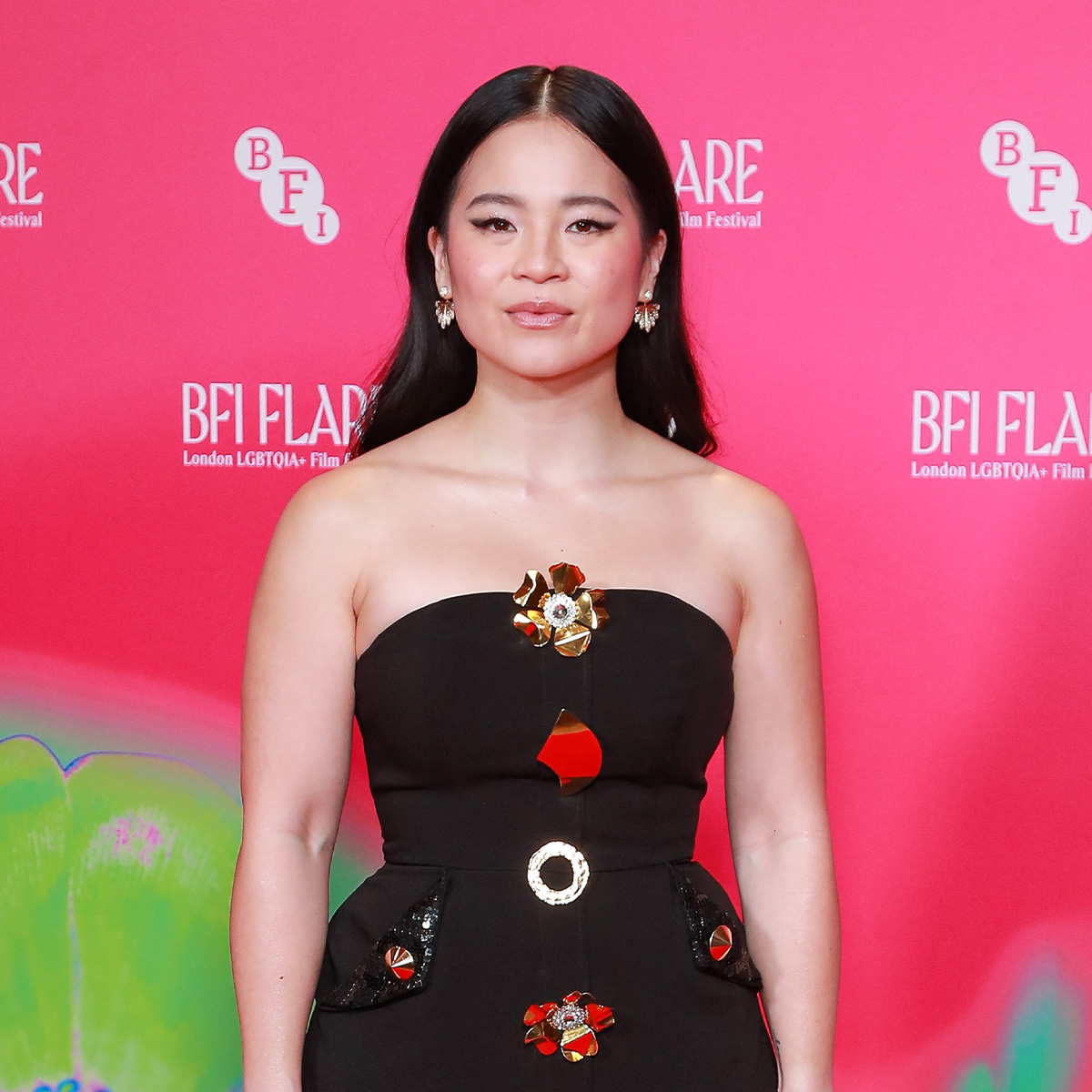Interview: Andrew Ahn on remaking Ang Lee's The Wedding Banquet and exploring queer identity on screen - The AU Review
Yeah, you know, Ang Lee’s The Wedding Banquet is the first gay film that I ever saw. It was a situation where my mom rented it, not knowing that it was a queer film, so we watched it as a family, and it feels incredibly meaningful to me that the first gay film that I ever saw was also a gay Asian film, and one that was told so beautifully. For that reason, it felt really full circle to have the honour and the privilege to reimagine the film for today. It put a lot of pressure on me (though). I put a lot of pressure on myself, because the original film is so beautiful and holds such a special place in my heart. But I also took a lot of that pressure off myself by really just focusing on telling a personal story that is meaningful to me today.
Yeah, sure. I think there’s a real question of motherhood that I think queer women, especially, have to explore and answer for themselves. I think that there’s a lot, whether it’s expectation or even biology, that dictate how they feel. I really wanted these characters to have different kind of journeys to motherhood and to really show the diversity of that experience. I think for me, I also wanted to create a found family that wasn’t all gay boys (laughs). Fire Island was so many gay boys, and I think that that’s very accurate for that story. And that’s one aspect of my life, but then I think about my queer community and it’s not just one gender. That was something that I wanted to show as well.
I knew that I wanted to have a wedding, and I feel like that was important. I also knew that I wanted to make it Korean, because I’m Korean, and that was one of my ways that I could make it my own. I really wanted to hold on to the storytelling philosophy of the original film. Ang Lee’s characters in (his) movie really feel like they exist outside of the bounds of that movie. I really wanted to show that same level of humanity. Really get that texture that these characters are human beings, and that we have the honour as an audience to get to watch them for a little while. But then they get to continue their lives after the movie ends.
I definitely wanted to explore a different kind of aspect of family. The original film so beautifully explores fathers and sons. I don’t think I could tell that story any better. So I decided to talk about matriarchs, you know, mothers and grandmothers. And making that change also allowed me to work with two incredible actresses, Joan Chen and Youn Yuh-jung. I think something else that I really was interested in was examining options. I think one of the biggest changes since 1993 for the queer community is that we can get married now. We have that option. What is that burden of choice? In the original film they accidentally have a baby. What if we show characters trying to have a baby? So we’re talking about these options that these queer characters have now created, and it was exciting to explore that drama.

Oh, yeah, definitely. Lily Gladstone, it was her idea to make the character indigenous. She wanted to make the character Duwamish, and changed her character’s name to be Lee, short for Angeline, the name of Chief Seattle’s daughter, the Duwamish chief that Seattle is named after. And so that change really brought up questions of stewardship and the land. A feeling of home that was so important to the whole movie. I had a lot of conversations with Bowen Yang about millennial indecision and the roots of that, and how now we have options and how do we responsibly take them?
It was such a wonderfully collaborative process with my actors, and that was something I really wanted to establish from the get go. So even in our earliest casting conversations with each actor, I wanted them to feel that freedom to suggest authorship. To claim ownership over these characters. So one of the things that I did during our rehearsal process with each actor within the two couples, I had the couples create a secret together that they would never tell me, and that could be a tool that they use to just find the history and humanity of their relationships.
I really love the tenderness between Bowen’s character and Han Gi-chan’s character, Chris and Min. There’s a softness, a coziness to their relationship that I really love. That was something that we conceptualized on the page, but once I saw them in scenes together, (it) really felt so special. There’s a quick moment between the two of them (doing) their morning rituals of doing skincare that just feels very lived in. And then I do really love Bowen and Kelly Marie Tran together. Their friendship got even more kind of co-dependent and toxic in a way that they really enable each other to make bad decisions. I think that’s kind of part of the drama of the film. I think they had so much fun together. I could really see these two people as best friends. I love that dynamic. It’s one of the strengths of the film.
I really wanted to show a queer Asian woman, and that was a part of the screenplay from the beginning. And the character of Lee was written as an open ethnicity, but I was really interested in working with an actor of colour for that role. I think Lily just really embodied that character so beautifully. I really wanted someone who is in this frenzy of emotion from everybody else (and) she’s the grounding factor. That’s something that Lily does so beautifully and with so much humour. I think, for me, it was about that kind of emotional core that really led to that. And the bonus is that we have these two actresses getting to work together.
That means a lot to me. Thank you. I appreciate you chatting with me.
The Wedding Banquet is now screening in Australian theatres.
Peter Gray
Seasoned film critic. Gives a great interview. Penchant for horror. Unashamed fan of Michelle Pfeiffer and Jason Momoa.
You may also like...
Diddy's Legal Troubles & Racketeering Trial

Music mogul Sean 'Diddy' Combs was acquitted of sex trafficking and racketeering charges but convicted on transportation...
Thomas Partey Faces Rape & Sexual Assault Charges

Former Arsenal midfielder Thomas Partey has been formally charged with multiple counts of rape and sexual assault by UK ...
Nigeria Universities Changes Admission Policies

JAMB has clarified its admission policies, rectifying a student's status, reiterating the necessity of its Central Admis...
Ghana's Economic Reforms & Gold Sector Initiatives

Ghana is undertaking a comprehensive economic overhaul with President John Dramani Mahama's 24-Hour Economy and Accelera...
WAFCON 2024 African Women's Football Tournament

The 2024 Women's Africa Cup of Nations opened with thrilling matches, seeing Nigeria's Super Falcons secure a dominant 3...
Emergence & Dynamics of Nigeria's ADC Coalition

A new opposition coalition, led by the African Democratic Congress (ADC), is emerging to challenge President Bola Ahmed ...
Demise of Olubadan of Ibadanland
Oba Owolabi Olakulehin, the 43rd Olubadan of Ibadanland, has died at 90, concluding a life of distinguished service in t...
Death of Nigerian Goalkeeping Legend Peter Rufai

Nigerian football mourns the death of legendary Super Eagles goalkeeper Peter Rufai, who passed away at 61. Known as 'Do...




